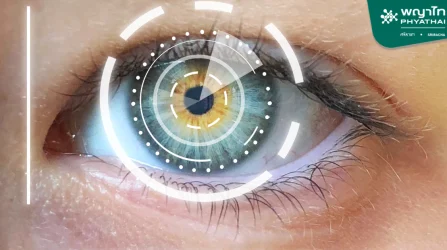For further information or Booking..
Elderly people can protect themselves from sudden cardiac arrest through screening.
As you enter old age, you often experience easy fatigue and frequent shortness of breath, leading to concerns about the risk of coronary artery disease. Is there a possibility of sudden cardiac arrest? Dr. Montree Charoenpanichsanti, a cardiologist at Phaya Thai Sriracha Hospital, explains that the most accurate diagnosis is through screening and checking the heart’s health. This approach is also the best way to prevent heart disease and reduce the risk of sudden cardiac arrest.
If you want to assess the risk of coronary artery disease, which method is suitable for you?
- Electrocardiogram (ECG) screening during rest and exercise on a treadmill (EST): The physician diagnoses based on changes in the heart’s electrical activity compared to a normal person. It is suitable for general screening for patients with low or moderate risk but may not be precise enough for elderly individuals, those with bone and joint problems, or patients with heart-like symptoms or relatively high risk (accuracy: 50-70%).
- Computed tomography angiography (CTA) screening for coronary artery disease involves injecting contrast dye for a CT scan to visualize a 360-degree image of the coronary arteries. It is suitable for individuals with moderate to high risk who cannot exercise on a treadmill. The test does not take long (accuracy: 90%).
- Coronary angiogram (CAG), the gold standard for diagnosing coronary artery disease, involves injecting dye through a catheter to visualize the movement of radiopaque substances through all three coronary arteries. It is suitable for patients with acute symptoms or high risk, such as advanced age, smoking, or diabetes. This type of examination requires at least half a day of hospital observation (accuracy: 100%).
Moreover, the heart can be examined for abnormalities using MRI. Currently, Phaya Thai Sriracha Hospital offers a new method of diagnosing heart diseases using MRI. It helps diagnose conditions such as ischemic heart muscle from coronary artery disease, congenital heart disease, enlarged heart, and heart failure. It provides guidance for patient treatment options such as medication, balloon angioplasty, or surgery. This method is highly specific and can be performed even in patients with kidney disease or iodine contrast allergies.
In treating heart disease in the elderly, patient safety is crucial. Elderly patients often have comorbidities, requiring multiple medications and treatment from various physicians. They may also have age-related kidney problems, necessitating medication dosage adjustment, caution against drug interactions, and minimal necessary drug use. Surgery in elderly patients carries an increased risk of complications. Whenever possible, medical treatment or minimally invasive procedures such as endoscopic or catheter-based interventions are recommended instead of major surgeries.
Screening is the best preventive measure against sudden cardiac arrest in the elderly. To prevent sudden cardiac arrest in the elderly, it is recommended to undergo screening, follow medical advice, and treat comorbidities such as diabetes, high blood pressure, and high blood lipid levels. Don’t just assume that feeling tired with age is normal; you can prevent heart disease and reduce the risk of sudden cardiac arrest.
“If you encounter a patient suspected of having sudden cardiac arrest, it is advisable to promptly refer them to a nearby cardiac center. Phaya Thai Sriracha Hospital is recognized as a comprehensive cardiac center with extensive experience in patient care, including medical treatment, catheter-based interventions, and cardiac rehabilitation through a dedicated team of cardiac specialists.”



















